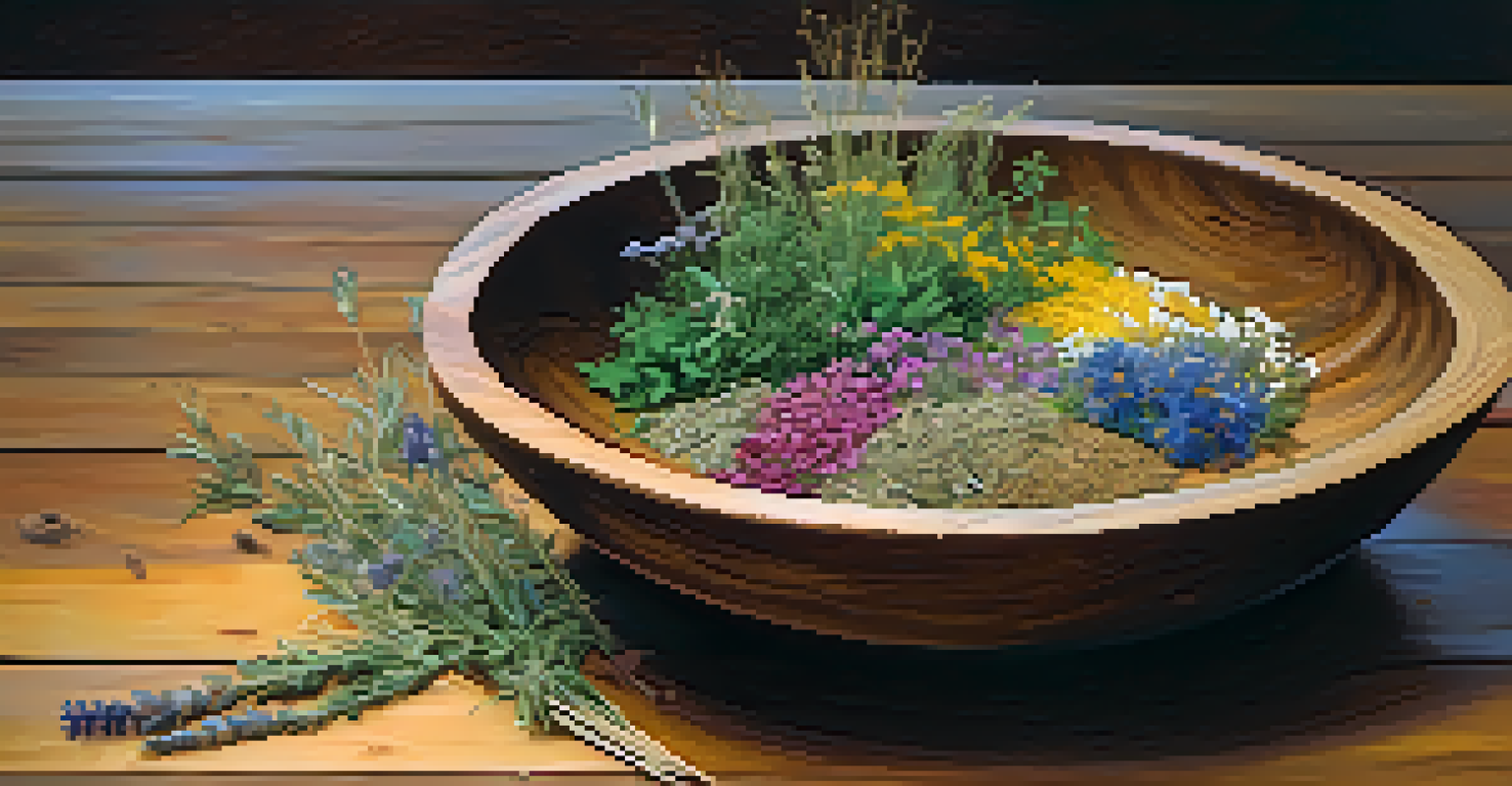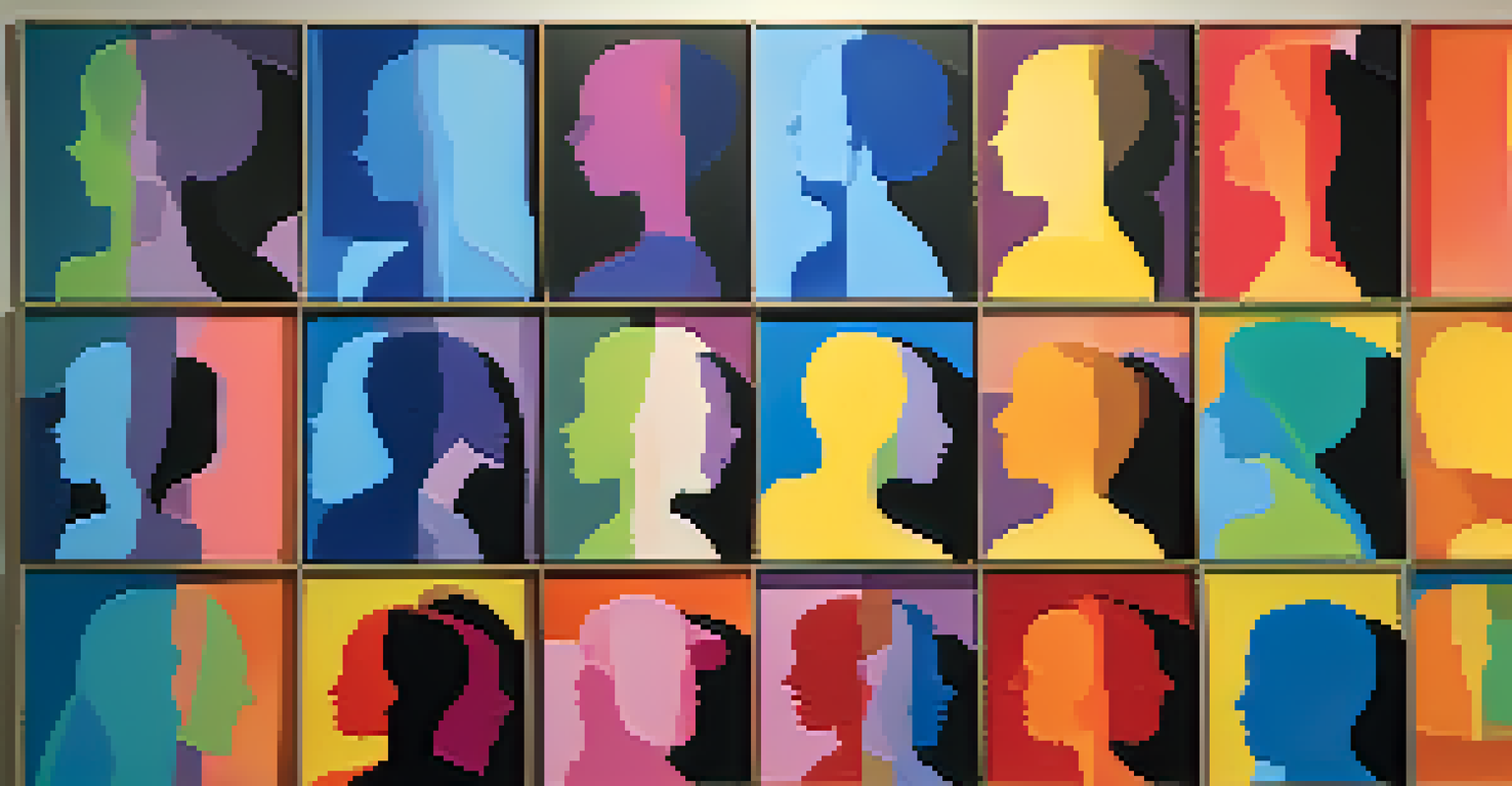Cultivating Compassion: Entheogens as Tools for Connection

Understanding Entheogens: Nature’s Connection Tools
Entheogens, often derived from plants or fungi, are substances that have been used for centuries in various cultures to promote spiritual connection and insight. Common examples include psilocybin mushrooms, ayahuasca, and peyote. These substances can facilitate profound experiences that often lead to a sense of unity with oneself and others.
The experience of entheogens can lead to a profound sense of connection with ourselves and the universe, sparking empathy and compassion.
By engaging with entheogens, individuals often report feeling more connected to nature and the universe. This can foster a deeper understanding of our shared humanity, sparking empathy and compassion. As we explore the effects of these substances, we open the door to a more interconnected experience of life.
Critically, it's essential to approach entheogens with respect and intention. When used in the right setting, they can serve as powerful tools for personal and communal growth, helping us cultivate compassion for ourselves and those around us.
The Science Behind Compassion and Entheogens
Research has shown that entheogens can significantly impact brain chemistry, particularly in areas associated with empathy and emotional regulation. For instance, studies suggest that substances like MDMA and psilocybin can increase feelings of connection and reduce fear, making it easier to engage with others authentically.

This shift in brain activity can lead to what many describe as a 'heart-opening' experience, where barriers between ourselves and others dissolve. It’s like going from viewing the world through a narrow keyhole to stepping back and seeing the vast landscape before you. This change can promote understanding and compassion in ways that traditional therapeutic methods sometimes struggle to achieve.
Entheogens Foster Connection
Entheogens can promote profound spiritual experiences that enhance empathy and compassion towards oneself and others.
Furthermore, these substances can help individuals confront and process past traumas, which often block our ability to connect with others. By clearing these emotional hurdles, entheogens can pave the way for deeper, more compassionate relationships.
Real-Life Stories: Transformation Through Entheogens
Many individuals have shared transformative stories of how entheogenic experiences have reshaped their perspectives on life and connection. For example, a person who struggled with anxiety and isolation might find a sense of belonging and love during a guided psilocybin session. This newfound perspective can lead to lasting changes in how they interact with others.
To understand the world, we must first connect with ourselves and each other, and entheogens can serve as a bridge to that understanding.
These personal anecdotes often highlight moments of deep empathy, where individuals feel a profound connection not just to their companions during the experience, but also to humanity as a whole. It’s as if the experience acts as a mirror, reflecting the interconnectedness of all beings.
Such stories illustrate the potential of entheogens as powerful catalysts for compassion, prompting individuals to take these feelings back into their daily lives. By sharing their insights, they often inspire others to seek deeper connections, creating a ripple effect of compassion in their communities.
Navigating the Risks: Responsible Use of Entheogens
While the potential benefits of entheogens are compelling, it’s crucial to acknowledge the risks associated with their use. Not everyone will have a positive experience, and factors such as setting, mindset, and personal history can greatly influence outcomes. Therefore, responsible use is paramount for cultivating compassion safely.
Engaging with trained facilitators or therapists who specialize in entheogenic experiences can provide a supportive environment that maximizes benefits while minimizing risks. This professional guidance can help participants navigate challenging emotions or unexpected experiences during their journey.
Responsible Use is Crucial
Approaching entheogens with respect and in a supportive environment is essential to ensuring safe and positive experiences.
Additionally, it’s essential to approach these substances with a mindset of exploration and respect. By doing so, individuals can create a conducive atmosphere for healing and connection, ensuring that their experiences contribute positively to their lives and those around them.
Cultural Context: Entheogens in Indigenous Practices
Many indigenous cultures have long practiced the use of entheogens in spiritual rituals, recognizing their potential to foster connection and community. For these cultures, these substances are not merely tools, but sacred gifts that facilitate communication with the spiritual realm and each other.
These traditional practices often emphasize the importance of community, intention, and respect for the natural world. Participants are guided through ceremonies that not only enhance individual experiences but also strengthen communal bonds, highlighting the interconnectedness of all participants.
By understanding the cultural context of entheogens, we can better appreciate their role as tools for cultivating compassion. This respect for tradition can inform modern practices, encouraging a more holistic and responsible approach to integration into contemporary society.
Integrating Compassion: Lessons from Entheogenic Journeys
The journey doesn’t end once the effects of entheogens wear off; integration is key to making lasting changes in our lives. Participants often find it beneficial to reflect on their experiences, discussing insights with others or journaling about their feelings. This process can help solidify the newfound sense of compassion and connection.
Practices such as mindfulness and meditation can complement these insights, allowing individuals to cultivate compassion in their daily lives. By being present and aware of our thoughts and feelings, we can nurture a greater understanding of ourselves and others, creating a ripple effect of empathy.
Cultural Context Matters
Understanding the indigenous practices surrounding entheogens can inform a more holistic and respectful integration into modern society.
Moreover, sharing these experiences with friends, family, or community members can further reinforce the lessons learned. When we engage in open conversations about our journeys, we not only deepen our own understanding but also inspire others to explore compassion in their lives.
The Future of Entheogens in Compassion Cultivation
As societal perceptions of entheogens shift, there’s a growing interest in their potential to foster compassion and connection. With increasing research and advocacy for responsible use, more people are beginning to recognize the value these substances can bring to personal and collective healing.
This evolving dialogue opens the door for further exploration into how entheogens can be integrated into therapeutic practices. As mental health professionals and communities embrace these tools, we can anticipate a future where compassion becomes a cornerstone of healing, driven by shared experiences and understanding.

Ultimately, cultivating compassion through entheogens invites us to rethink our relationship with ourselves, each other, and the world around us. As we continue to explore these powerful tools, we can look forward to a future enriched by deeper connections and a shared commitment to empathy.